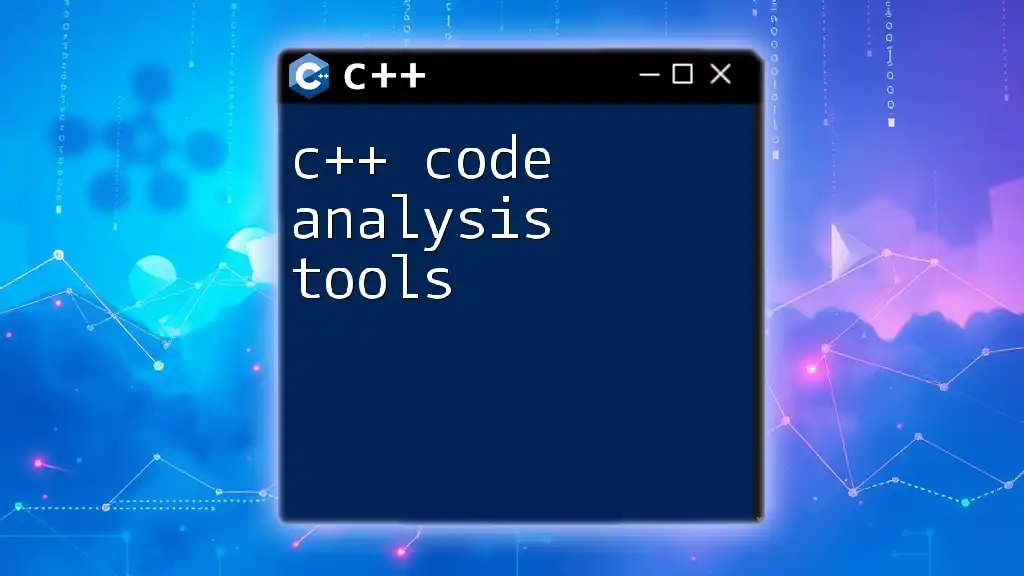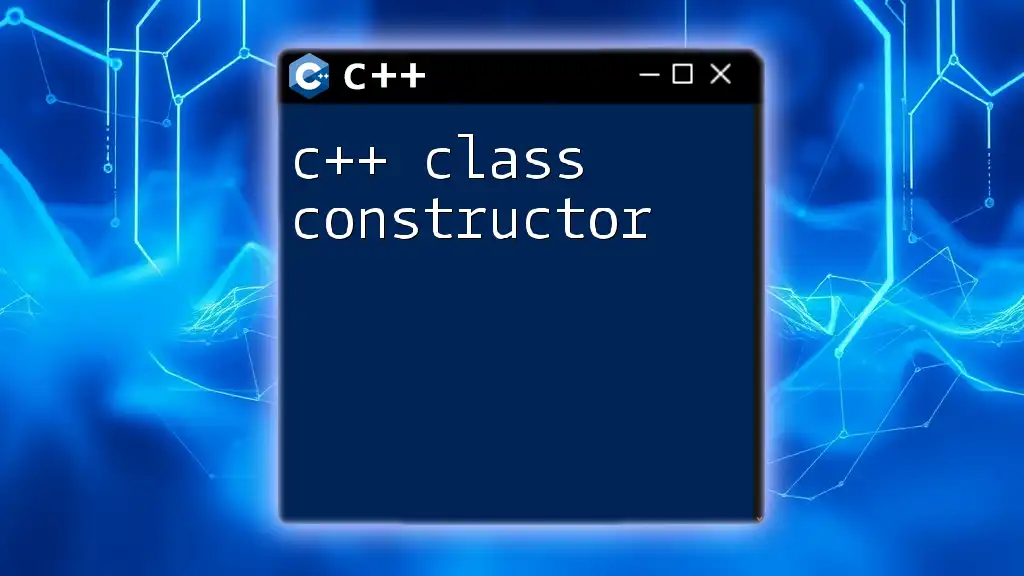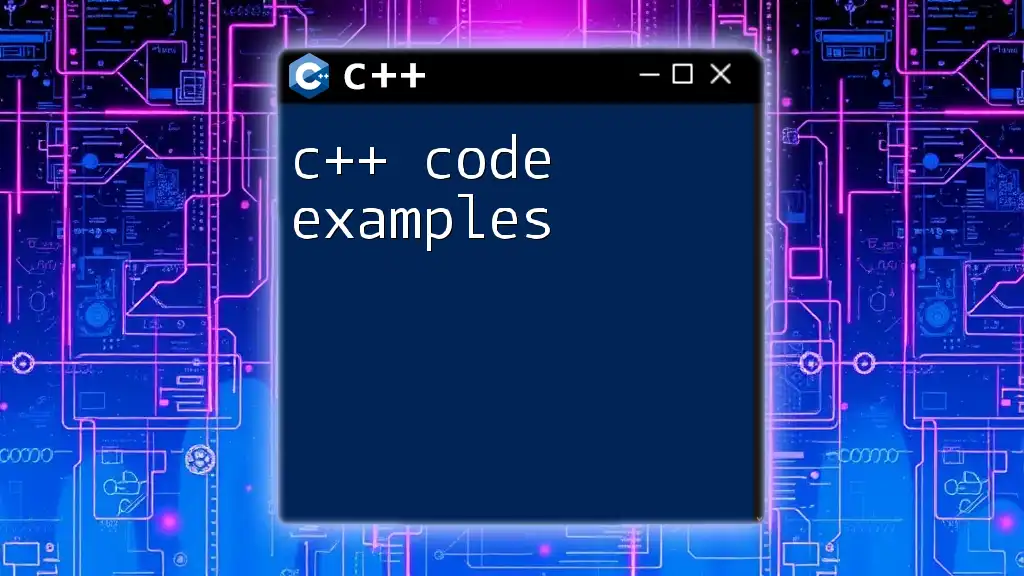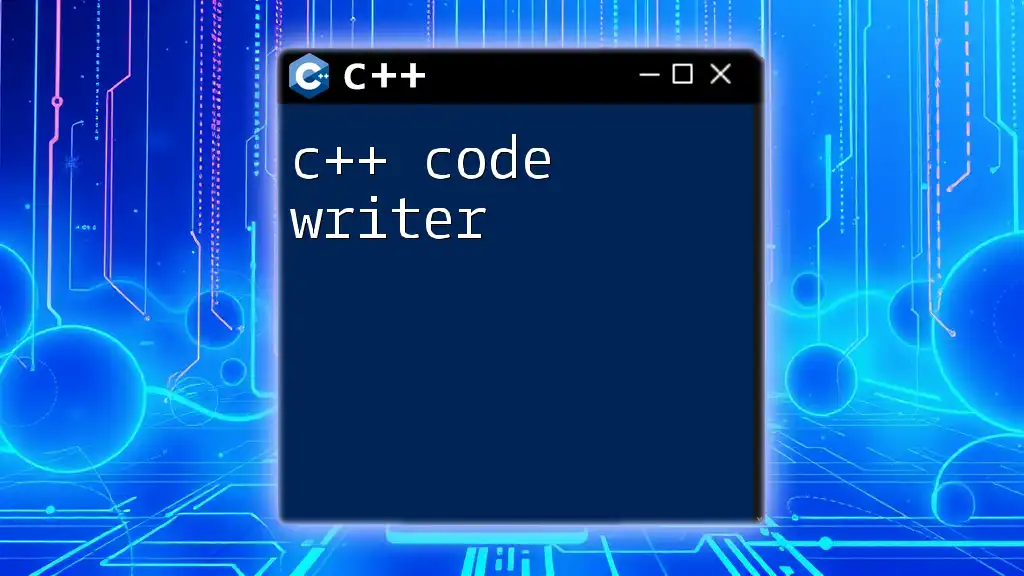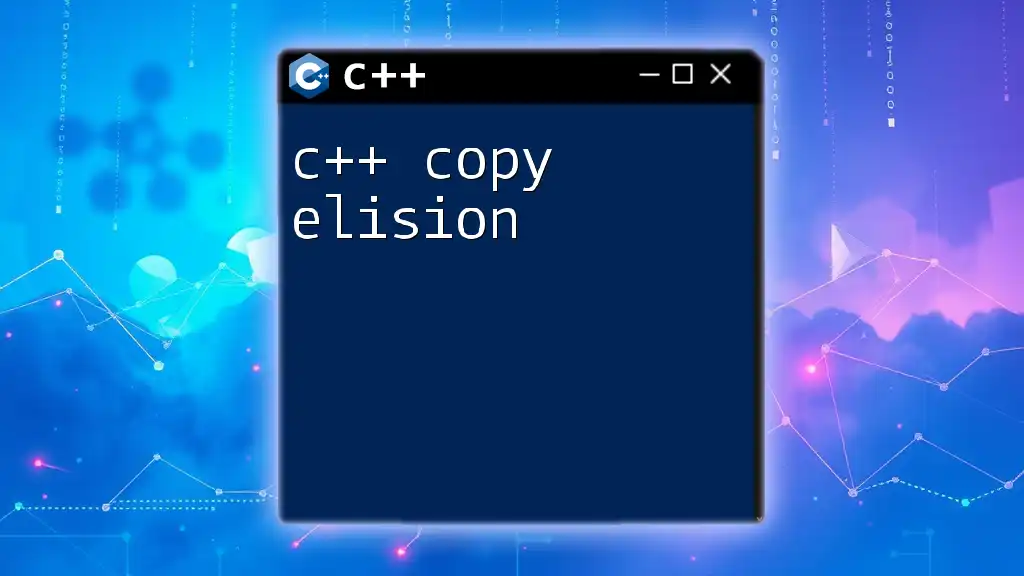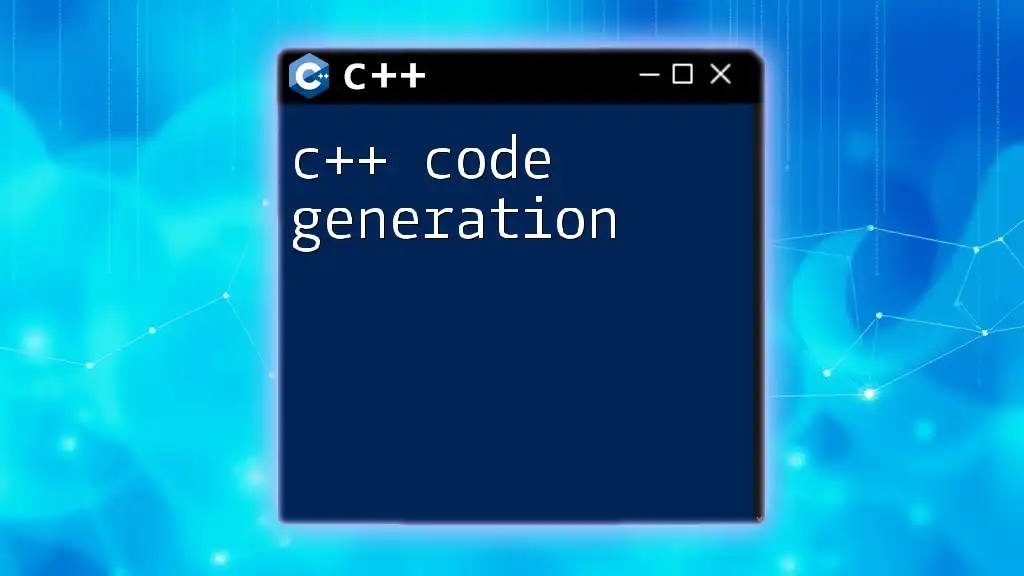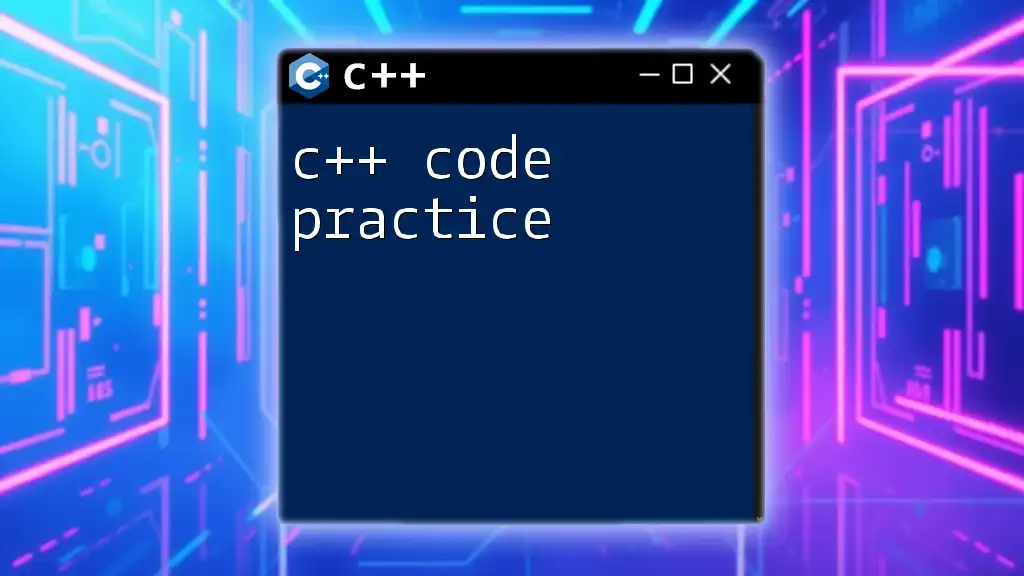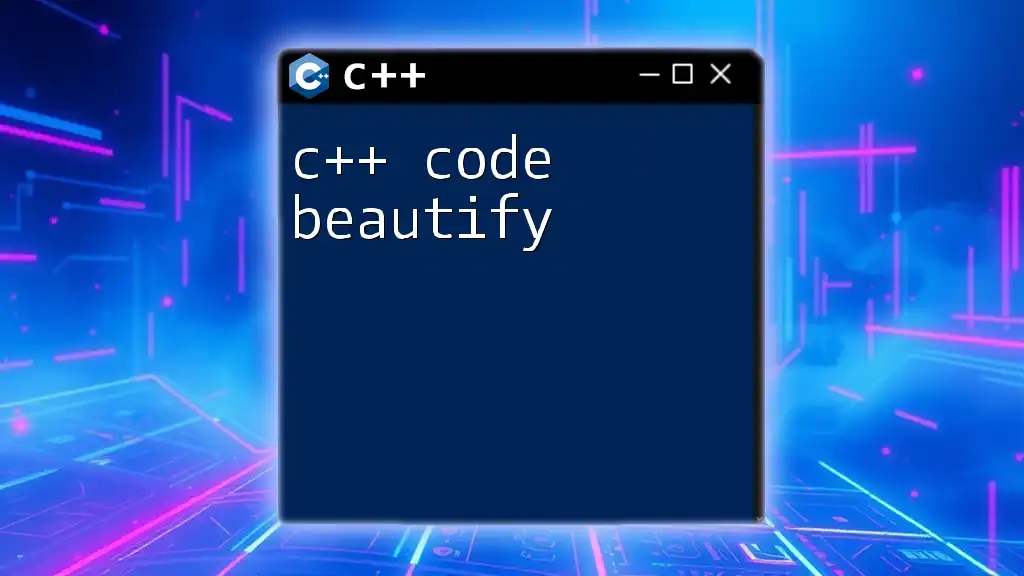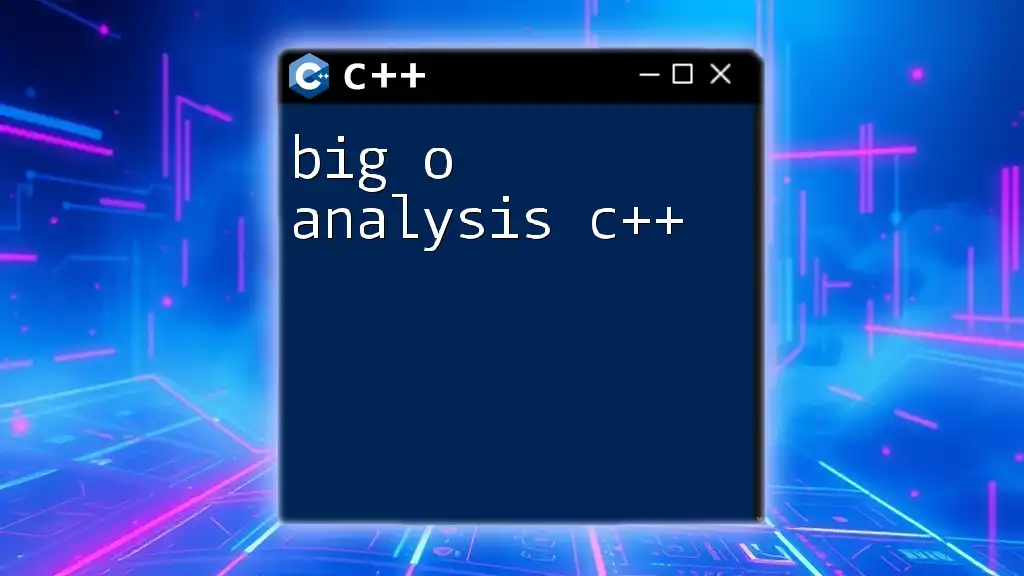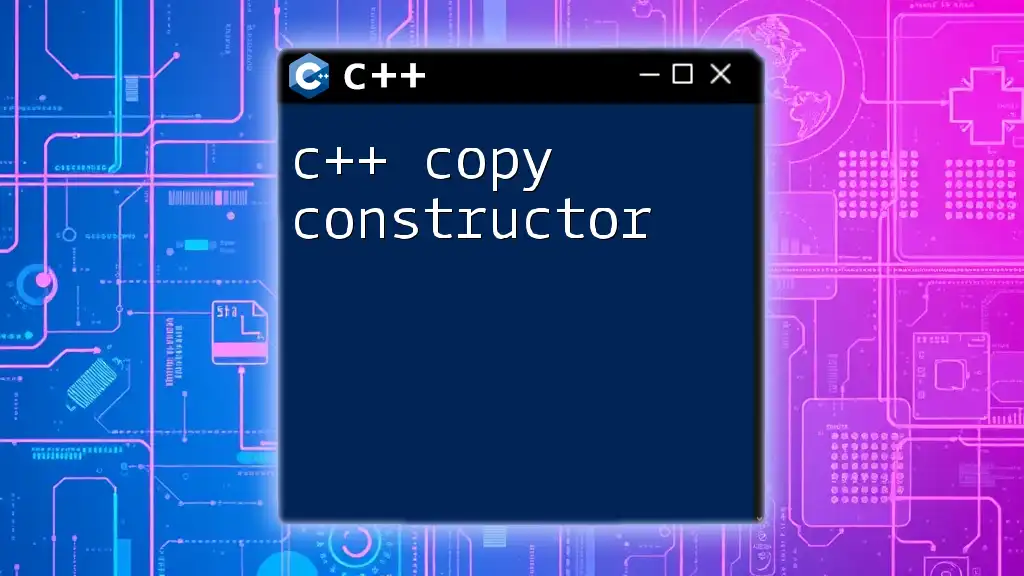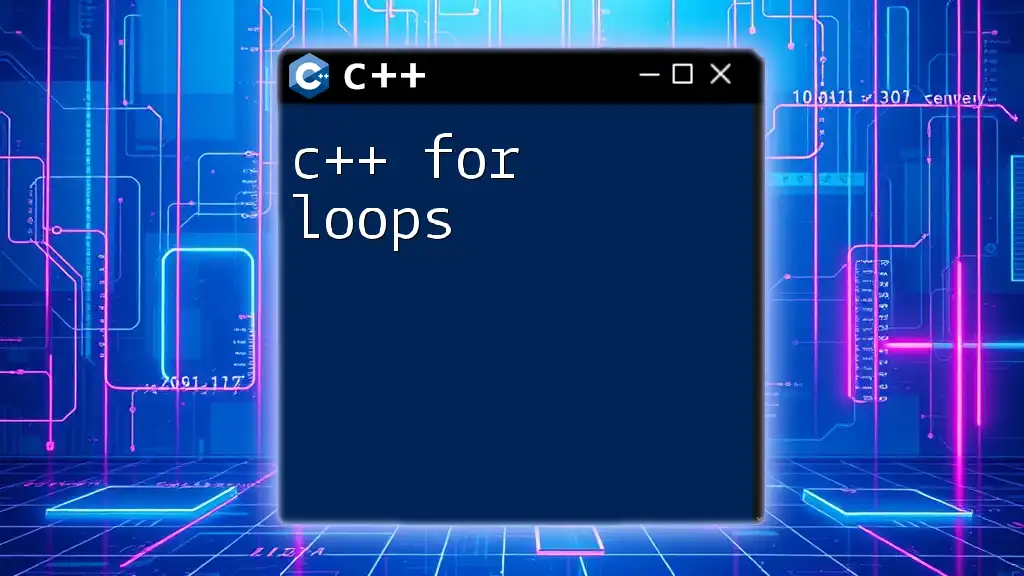C++ code analysis tools are software utilities designed to inspect C++ code for potential errors, code quality issues, and adherence to coding standards, ultimately improving code maintainability and performance.
Here's a code snippet that demonstrates a simple C++ program:
#include <iostream>
int main() {
std::cout << "Hello, World!" << std::endl;
return 0;
}
Types of Code Analysis
Static Code Analysis versus Dynamic Code Analysis
Static code analysis refers to the examination of source code without executing it. This method analyzes the code to identify potential vulnerabilities, bugs, or deviations from coding standards. In contrast, dynamic code analysis involves executing the code and monitoring its behavior in real-time. Both methods play crucial roles in software development, but they address different aspects of code quality.
Use Cases and Examples
- Static analysis is best employed early in the development process. For example, developers can use tools to catch common pitfalls before they even run the program.
- Dynamic analysis comes into play during testing, as it helps identify runtime errors, memory leaks, and performance issues that may arise while the program is operational.
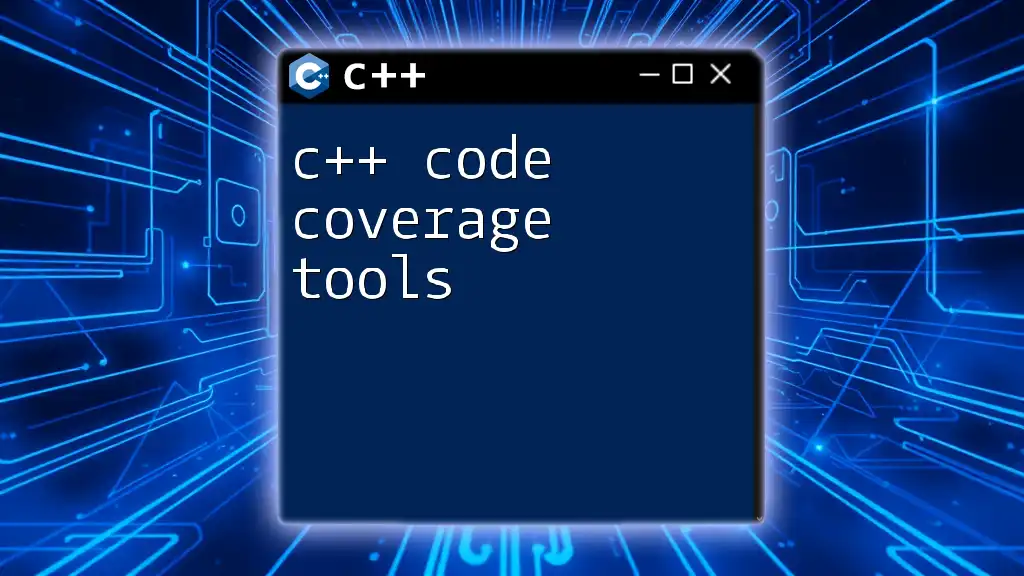
Overview of C++ Static Analysis Tools
What Are C++ Static Analysis Tools?
C++ static analysis tools help developers detect potential problems in their code before execution. These tools parse through the source code, analyze control flow, data flow, and coding standards to identify issues such as memory leaks, uninitialized variables, and maintainability concerns. By using static analysis, developers can adhere to best practices and improve the overall quality of their C++ applications.
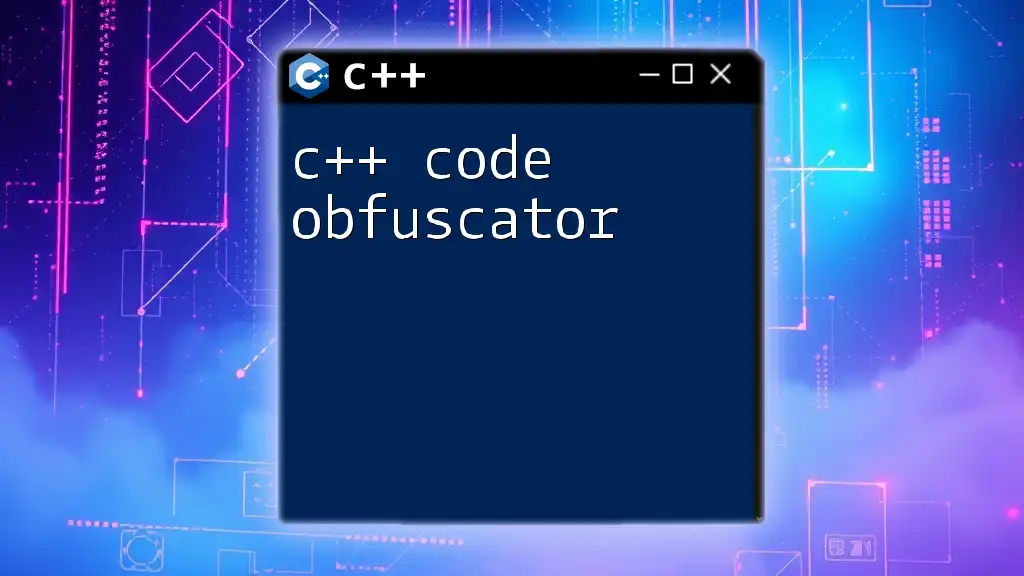
Popular C++ Static Analysis Tools
SonarQube
Features and Benefits SonarQube is a popular tool that provides comprehensive code quality metrics, including maintainability, reliability, and security. It integrates seamlessly with CI/CD pipelines, real-time monitoring of code quality, and violation tracking.
Getting Started with SonarQube To begin using SonarQube, you can follow these steps:
- Install SonarQube by downloading it from the official website and following the setup instructions for your operating system.
- Set up your project:
- Create a new project in the SonarQube dashboard.
- Use the following command to analyze your code:
sonar-scanner \
-Dsonar.projectKey=my_project \
-Dsonar.sources=.
CPPCheck
Overview and Capabilities CPPCheck is an open-source static analysis tool designed to catch bugs that other compilers may miss. It targets C/C++ code specifically, providing thorough reports on code issues.
Using CPPCheck To use CPPCheck in your project, install it through your package manager or download the binaries. Here’s how you can run it:
cppcheck --enable=all .
This command will analyze all the source files in your directory. You can refine the analysis by specifying particular checks or excluding files.
Clang-Tidy
Why Use Clang-Tidy? Clang-Tidy is a powerful tool that not only performs static analysis but also provides the ability to apply automated fixes. Its deep integration with the Clang compiler allows it to detect issues that make the most sense for C++.
Configuration and Example Usage To get started with Clang-Tidy, install it as part of the Clang toolset. Here’s a basic example of using Clang-Tidy:
clang-tidy my_code.cpp -- -std=c++17
This command initiates an analysis of `my_code.cpp`, ensuring compatibility with the C++17 standard.
Coverity Scan
Enterprise-Level Solutions Coverity Scan focuses on large-scale applications and enterprise solutions, providing a robust suite of features for extensive codebases. It provides deep insight into code quality and potential security vulnerabilities.
Integration and Reporting Setting up Coverity can be intricate, but it is well worth the effort for larger projects. You typically integrate it into your build process. Here’s a simple command to analyze a project:
cov-build --dir cov-int make
cov-analyze --dir cov-int
This example demonstrates how easy it is to run Coverity on a Makefile-based project.
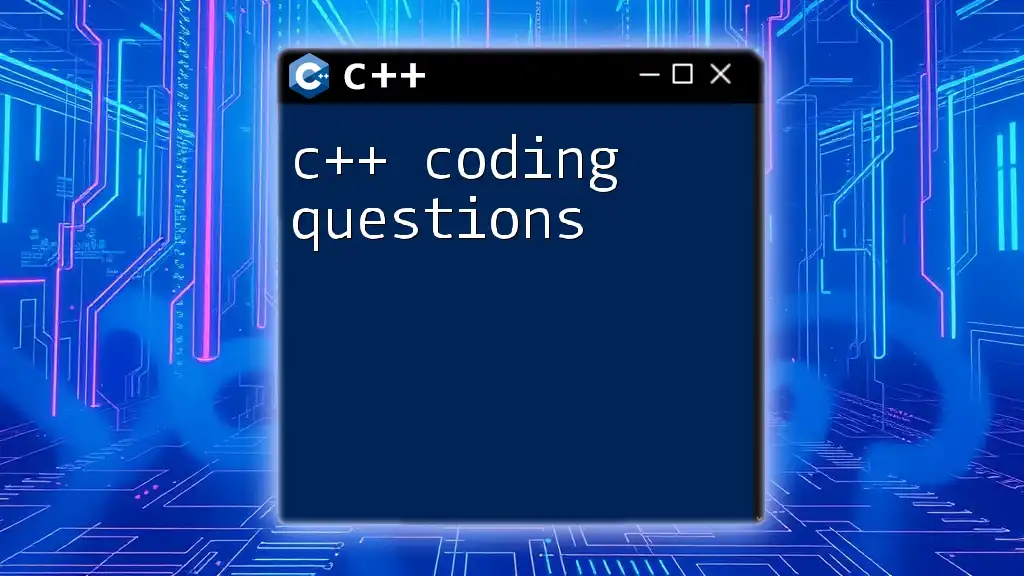
Benefits of Using C++ Static Analysis Tools
Enhancing Code Quality
One of the primary benefits of C++ code analysis tools is their ability to detect bugs early in the development cycle. Studies show that early bug detection reduces the cost of fixing issues later on, leading to significant savings and improved product quality.
Improving Code Maintenance
Code maintainability is crucial for long-term project success. Static analysis tools enhance the readability and organization of your code. They help enforce coding standards and best practices, making it easier for developers to understand and modify the codebase over time.
Compliance with Standards
In industries with strict coding standards, such as automotive or healthcare, static analysis tools can help ensure compliance with those rules, such as MISRA C++. This compliance not only enhances the safety of the software but also builds trust with clients and users.
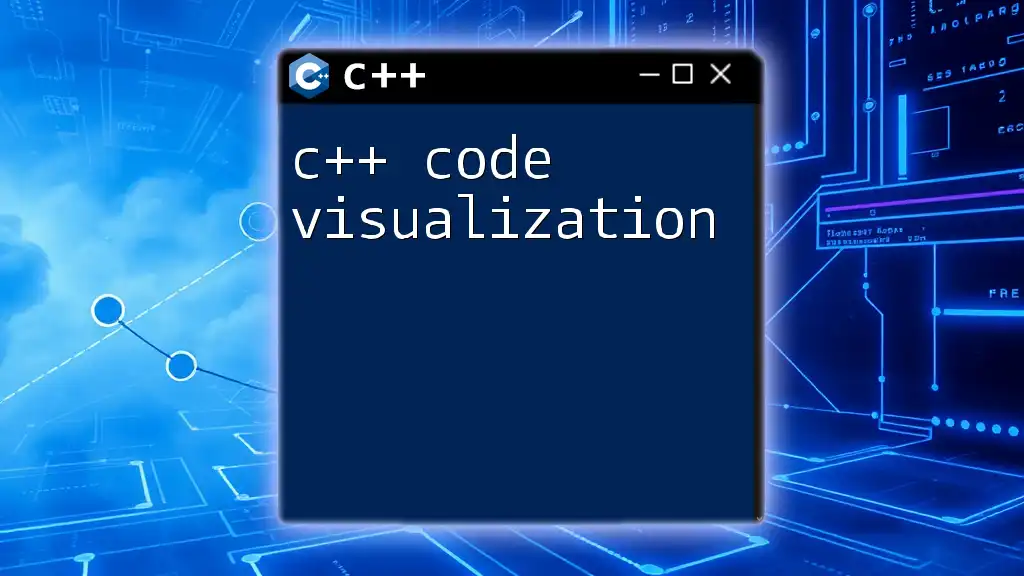
Challenges of C++ Static Analysis
False Positives
While static analysis tools provide valuable insights, they can also generate false positives—warnings or issues that don't actually represent a problem in the code. Understanding the nature of these false positives is essential for developers, as they can lead to confusion and wasted time.
Tool Limitations
Static analysis cannot catch every issue. Certain runtime errors, such as concurrency issues or memory leaks, often require dynamic analysis or extensive testing environments to be detectable. This makes it important to use static analysis in conjunction with other testing methods for optimal code quality.
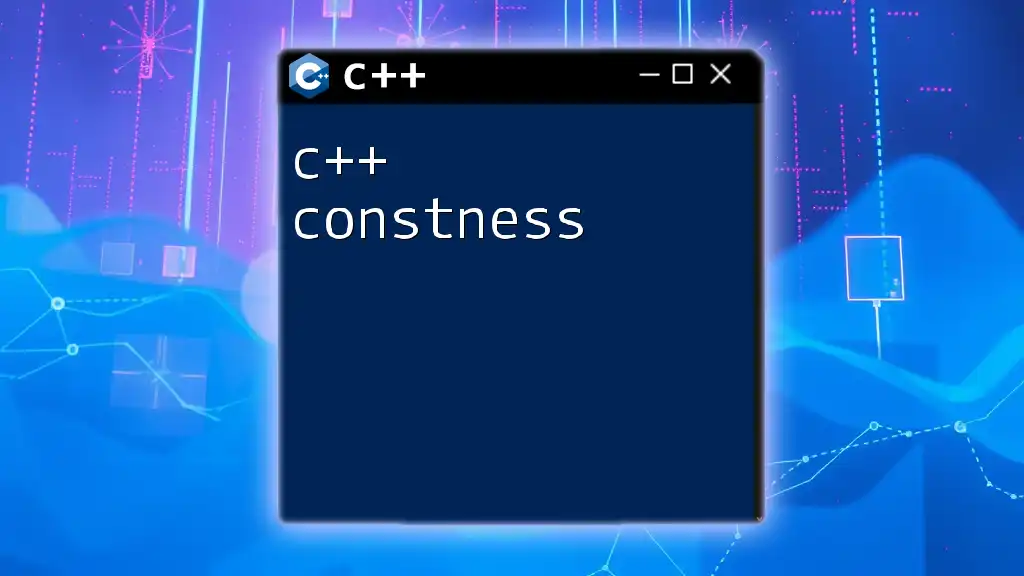
Best Practices for Using C++ Static Analysis Tools
Regular Integration
Incorporating code analysis into your development workflow is essential. By running static analyses regularly, perhaps on every commit or nightly builds, teams can identify issues as they arise.
Customize Your Tooling
Configuration is key to reducing noise from false positives. Tailor your static analysis tool settings to fit the specific needs and standards of your project, ensuring that your analysis is relevant and effective.
Educating Your Team
As you implement C++ static analysis tools, educate your team on interpreting the results. Create a culture that values continuous improvement, encouraging team members to learn from the insights provided.
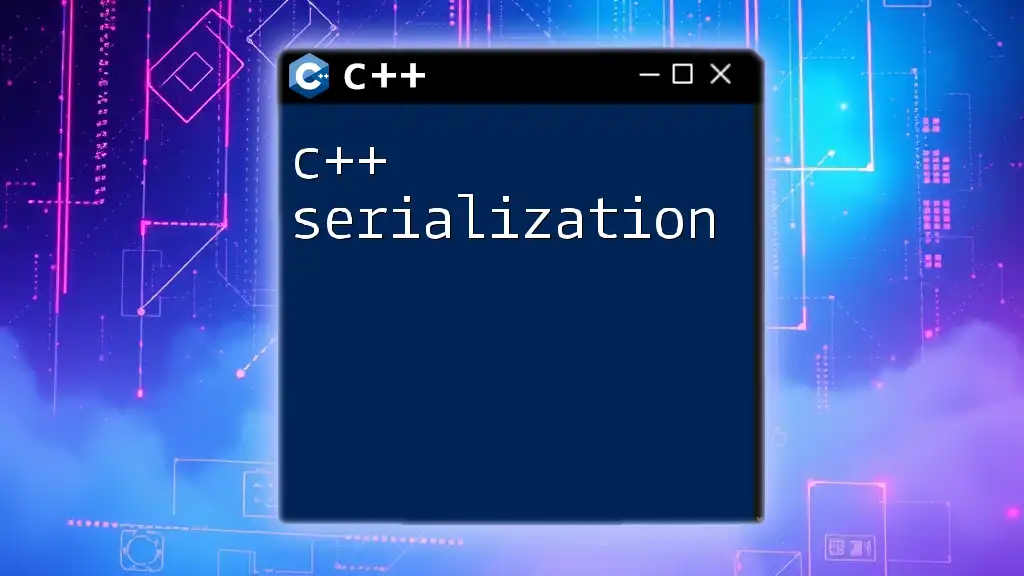
Conclusion
Utilizing C++ code analysis tools can profoundly impact the quality, maintainability, and safety of your code. By adopting static analysis practices, you not only improve your development process but also create robust applications that stand the test of time.
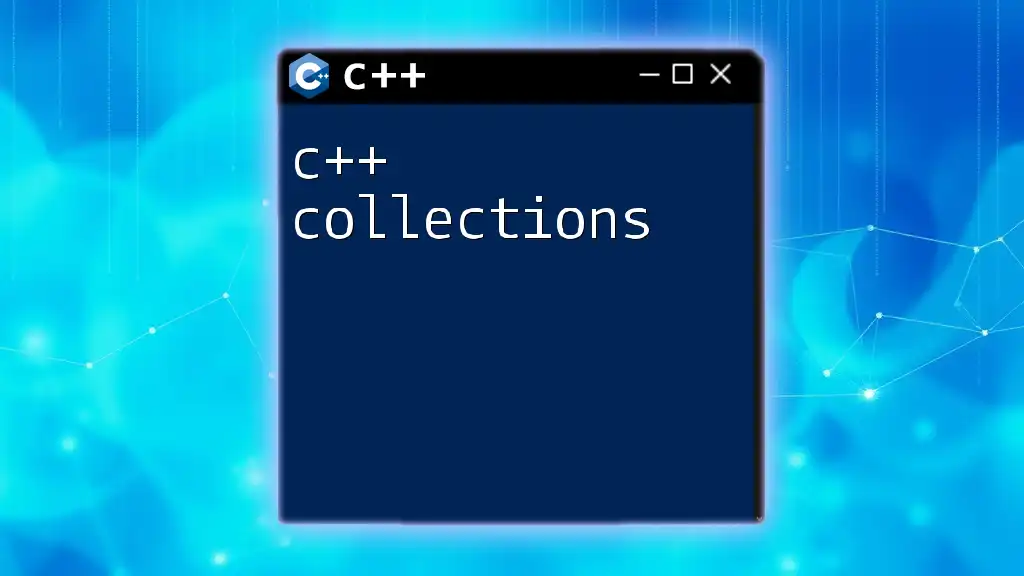
Additional Resources
Recommended Reading
Explore literature on static analysis best practices and tools to deepen your understanding.
Online Communities and Forums
Engage with other developers through platforms like GitHub and Stack Overflow to share insights and experiences with C++ code analysis.
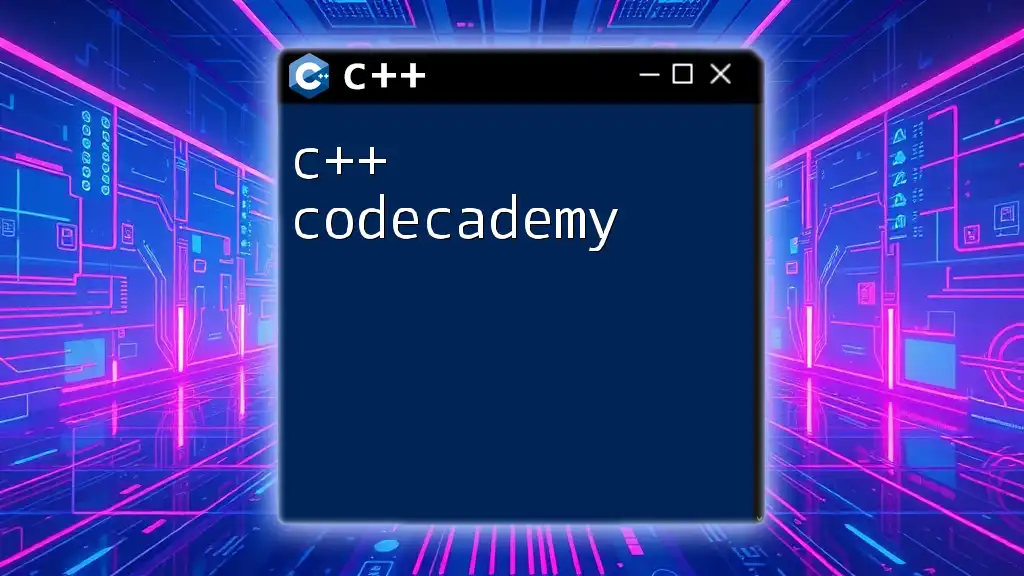
Call to Action
Start incorporating C++ static analysis tools into your development workflow today. By doing so, you will enhance your code quality, mitigate risks, and ensure long-term success for your projects.

